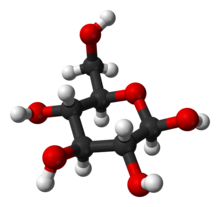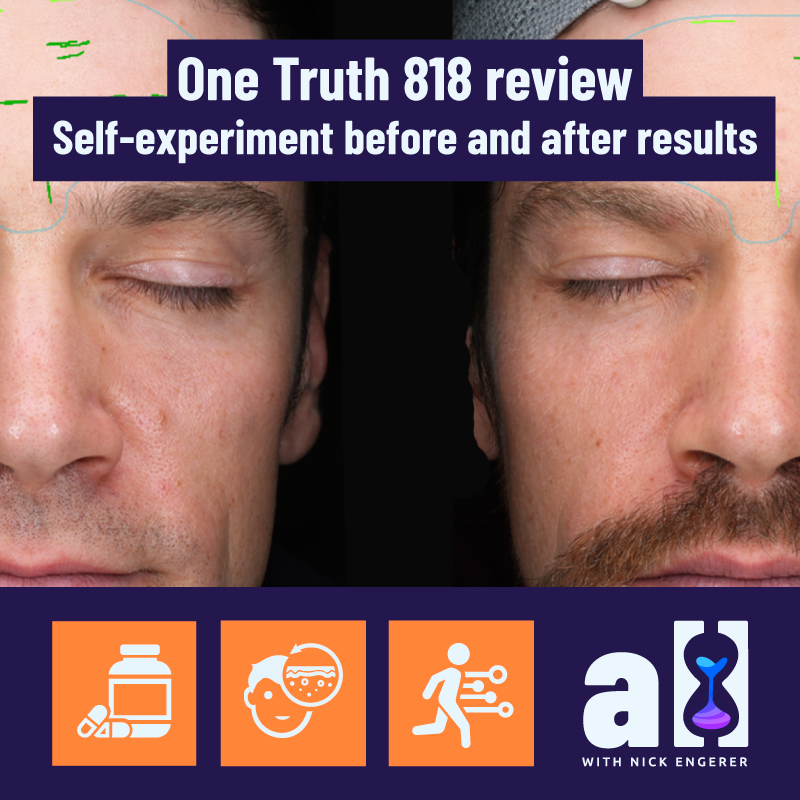Biological age testing with Glycans - GlycanAge
Should you try a GlycanAge test?
The GlycanAge test kits - a clean, elegant design with fascinating technology under the hood.
This trend is in its early stages, but is set to continue, as gathering detailed information about your body to assess how quickly it is ageing hits the mainstream.
Today, we are introducing you to a new way to assess your biological age.
Whereas previous methods we have reviewed use age-related blood markers or your epigenome for this assessment - today’s technology from GlycanAge uses your glycans.
What are Glycans? Glycans and biological age
To start things off, we should probably address your first likely question - what the heck are glycans?
Clearly we need to understand this a bit first, before we can understand how they can be used as a biological age measurement.
Glycans is not a term that most people are familiar with, but they actually refer to a fairly simple concept.
First, we start with monosaccharides, which include more commonly known ‘sugars’ including fructose, glucose, and galactose.
Most of us are familiar with these monosaccharides - they are the simple carbohydrates common in our diet. More broadly, they can be thought of as the ‘fuel’ for our cells, as well as the energy source for most biological organisms!
Glucose Molecule (Monosaccharide)
Fructose (Another Monosaccharide)
Cellulose - a combination of glucose molecules to form a glycan
Combining Monosaccharides to create Glycans
In practice, monosaccharides can actually be linked together in a very wide variety of long chain-like formations. This how you create a glycan.
A very well known glycan (also known as a polysaccharide) is cellulose, take a look at how it is built out of the monosaccharides above, just in a much more complex arrangement.
Glycans and information
Glycans are influential in many processes occurring within your body. One way to think of their involvement is carriers of information.
As complex arrangements, there are many unique arrangements of glycans in the body which often represent very important signals regarding your health and wellbeing.
A healthy cell, with healthy glycans at the cellular membrane (the multi-coloured squares, circles and lines). Credit: Gly-tech
The valuable ‘signal’ that these complex sugar structures can offer has resulted in the field of ‘glycoscience’, which studies wealth of information glycans have to offer.
This information includes critical details about your overall wellbeing, with the presence (or absence) of certain glycans can be indicative of many conditions in the body, including many diseases, as well as - you guessed it - the processes behind ageing itself.
Glycans, inflammation and ageing
An unhealthy cell, with unhealthy glycans at the cellular membrane. Credit: Gly-tech
Glycans are intimately involved with your immune system, where they are used to ‘tag’ invading pathogens, signalling the immune system to attack and remove them.
Furthermore, the wrong glycans in the wrong place can generate an immune response, which then drives inflammation.
If you’ve learned about the basics of aging, and many of you have, you’ll be quite aware of the importance of tracking and managing inflammation to stay healthy for as long as possible.
The link between inflammation and ageing is known as ‘inflammaging’.
High level overview: Inflammaging is the process whereby increasing levels of inflammation add continual age-related stress and damage to the body, including more inflammation - and thus a feedback cycle develops making you age even faster.
Sounds like a great thing to keep in-check, no?
The links between inflammation, aging, and glycans are what make glycans great choice for monitoring your biological age.
GlycanAge as a biological age test
While glycoscience still has much to learn about glycans and their role in aging, metabolism, disease and immune function, there are many decades of research and enough large datasets available to support the creation of a biological clock based on glycans.
We’ll be covering the specifics on how this works in upcoming posts, but the key takeaway is: tracking the characteristics of the glycans in your body can provide an accurate and valuable assessment of your biological age.
And in the case of GlycanAge, your biological age will be primarily influenced by four lifestyle factors:
Stress levels
Exercise load (both too little and too much)
Dietary choices (including food allergies)
Sleep (what’s the right amount for you?)
Each of these factors are known to be very influential in how you are ageing.
As such, you can use a GlycanAge test to create a baseline, before making controlled changes/improvements in these factors, and then re-testing to see if they worked (i.e. did you reduce your biological age?).
This is central to what A Longer Life is all about - self-experimenting and customising your own longevity strategy to make the best gains in your healthspan.
Given the nature of these lifestyle factors (stress, diet, exercise), self experimenting with GlycanAge is a very accessible way to start working to improve your own biological age.
Regularly testing GlycanAge can therefore be used to monitor and improve your health over time, with each of those small changes adding up to positively impact your longevity significantly over time.
 |
GlycanAge and its mission
Don’t miss it!
We’ll be interviewing glycan expert Gordon Lauc on how you can used GlycanAge to improve your own health & longevity. Subscribe to get notified when we do!
The concept of using glycans to track and positively impact your healthspan has only been made possible through the vision and ambition of GlycanAge’s CEO and Founder Nikolina Lauc
Founded in 2016, the company is built upon the foundational work carried out by expert in all things glycans Professor (and Nikolina’s father) Gordan Lauc.
But don’t take it from us - hear it straight from Nikolina herself:
GlycanAge Founder and CEO Nikolina Lauc
Describe your motivations for founding GlycanAge - what opportunity did you see?
Nikolina Lauc (NL): GlycanAge originally came out of pure scientific curiosity.
My father is a glycobiologist who's worked in the glycan research field for 30+ years, they saw that glycans change with age and were curious as to how and why they change, as well as what we can do to influence it.
Hence the term GlycanAge, actually “GlycanBioAge” originally, was coined.
Glycans are one of the key regulators of our immune system, they contribute to ageing through a process called inflammageing.
Inflammation is a key driver of almost all chronic conditions and glycans are known to change before onset of symptoms and even a decade before onset of disease, giving us an opportunity to do true prevention and extend one's healthspan.
“Glycans are known to change before onset of symptoms and even a decade before onset of disease”
How would you describe GlycanAge’s mission - what drives your team? What have you set out to achieve?
NL: We want to keep you and your loved ones around for longer through precision health.
Our mission is to bring glycoscience into the hands of both clinicians and consumers to inform, guide and preserve your future health.
Glycans have a large influence on your unique biology, they play an intermediary role between your genetic potential and end phenotype, their true value lies in uncovering which intervention or lifestyle works for you particularly as an individual.
How has regularly testing your own GlycanAge improved your wellness?
“Glycans true value lies in uncovering which intervention or lifestyle works for you particularly as an individual.”
NL: Although my GlycanAge has always been favourable, regular testing helps me measure the damage (for example - COVID lockdowns and weight gain), and get back on track through sustainable change.
Beyond me, I've probably tested the majority of my extended family!
Coming Up:
(1) An interview with GLYCAN expert Gordon Lauc (read that here!)
(2) How our Founder Nick is using GlycanAge to run his own self-experiment (read it here)
Follow our Founder Nick on Twitter for the latest #Longevity news!
-
RT @rebeccavziegler: The cryonics payoff matrix. Choose wisely my friends. https://t.co/l1rzsmOC2w
-
My rate of aging: 0.79 It’s the new street cred What you got? https://t.co/aHzWHAfCnD https://t.co/L3rZC4QFN2
-
It’s official - I’m co-producing and hosting a new #longevity docuseries, and will begin shooting in a few months… https://t.co/wLGqRrBfbp
-
“The #longevity segment opened my eyes to the groundbreaking advances in biotechnology, health, and wellness. The i… https://t.co/F8YB7PAeMW
-
I’m completely mindblown by what AI has done over the past 3-6 months, and it continues to accelerate… https://t.co/hh0JslucRg
-
Longevity legends take on many shapes and sizes https://t.co/X9vGa7gvOe
-
RT @BradStanfieldMD: Avoid These Popular Supplements (shout out to Professor Matt Kaeberlein @mkaeberlein & Professor Brian Kennedy… https://t.co/cy9CXldgUS
-
Who are influential persons in #longevity who are of Asian, African American or other “minority” group in the US?
Nick also posts related #Longevity content to Instagram as well, follow him at @nickengerer
FDA & TGA DISCLAIMER
This information is intended for educational purposes only and is not meant to substitute for medical care or to prescribe treatment for any specific health condition. These blog posts are not intended to diagnose, treat, cure or prevent any disease, and only may become actionable through consultation with a medical professional.



































